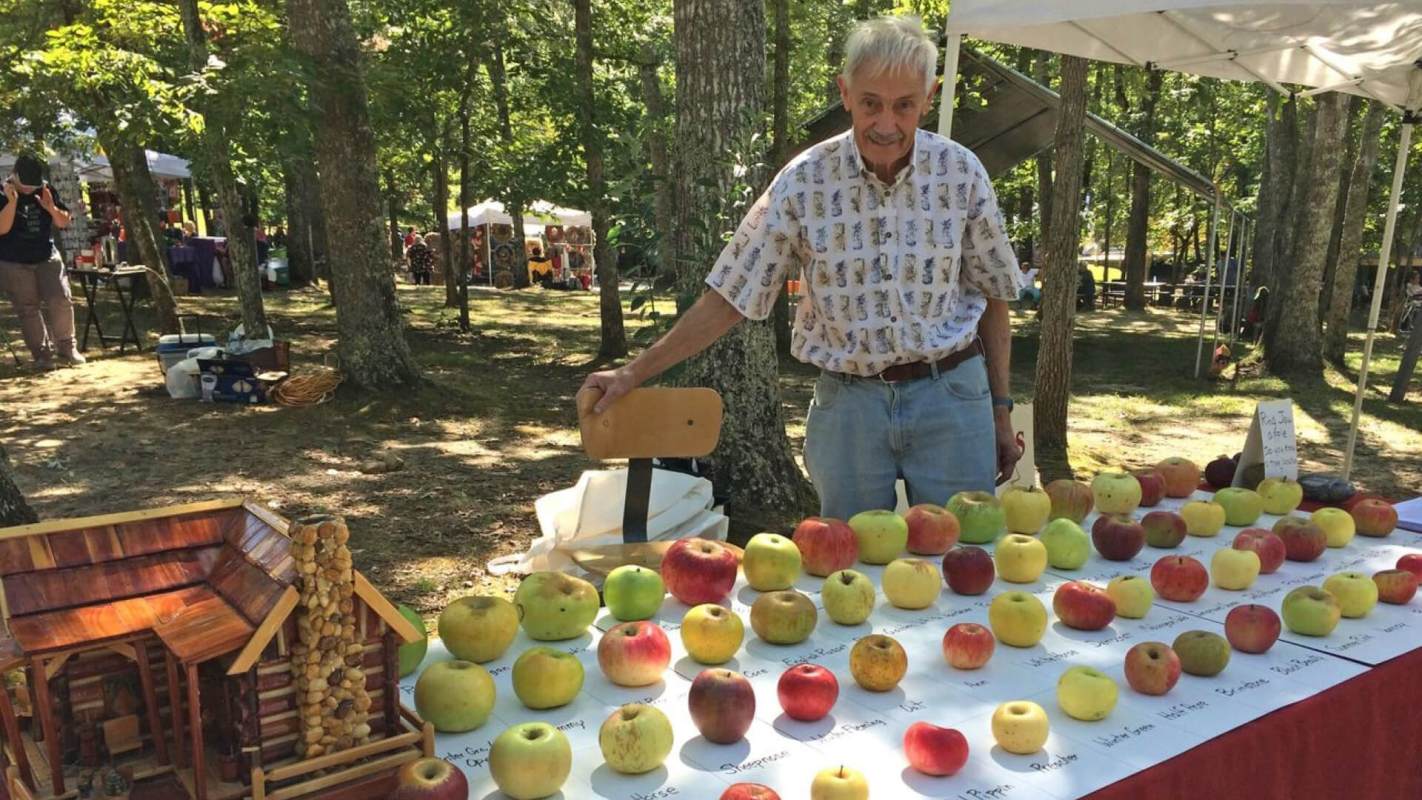Tom Brown is on a quest to preserve a key part of America's edible heritage: apples.
The retired chemical engineer was not always so keen on tracking down rare, historical apples. In fact, he hadn't even heard of a heritage apple until stumbling upon some at a farmer's market in the late '90s.
Brown describes sampling some varieties of the fruit with flavors and colors he'd never encountered. Even the names were intriguing: White Winter Jon, Arkansas Black, and Etter's Gold, to list just a few.
Brown's interest was thoroughly piqued. After talking with the vendor, Maurice Marshall, he learned that as commercial growers began to prioritize a relatively slim variety of the fruits in the 20th century, thousands of other apple varieties began to disappear — many for good. Around the time of this conversation, a mere 11 types of apples accounted for 90% of sales in the U.S.
This didn't sit well with Brown. "It upset me to learn about that," he remarked during an interview with Atlas Obscura.
Marshall also explained the origin behind his own collection of apples. Many had been recovered from elderly homesteads in Appalachia. This seemed to indicate that there were likely more varieties out in the world, lingering on old properties and abandoned orchards.
"That part stayed with me," Brown said. "I kept thinking: 'How neat would it be to find an apple nobody's tasted in 50 or 100 years?'"
He would not find himself wondering for too long. Already in search of a retirement hobby, the timing felt right to explore what he referred to as "a calling" to search for lost apple varieties. After connecting with a small community of rare orchard growers and diving into extensive research, Brown began to track down forgotten fruit trees and share their produce again with the world.
To date, Tom Brown has rescued more than 1,200 varieties of apples from extinction and has 700 kinds growing in his own personal orchard. Some of the apples rescued came from solitary specimens — the absolute last of their kind.
Brown is pleased with his work, but he has no plans on stopping any time soon. "I like the challenge of finding the old apples. My favorite apple is one that I am searching for but have not found yet," he said during an interview with Southern Living.
Perhaps "Appleachia" may soon prove a more accurate name for the region as more and more of these rare fruits are saved from extinction and interest in these apples grows again.
Join our free newsletter for easy tips to save more, waste less, and help yourself while helping the planet.








